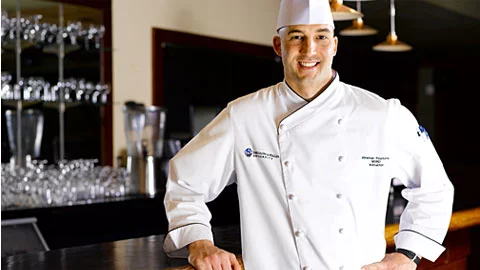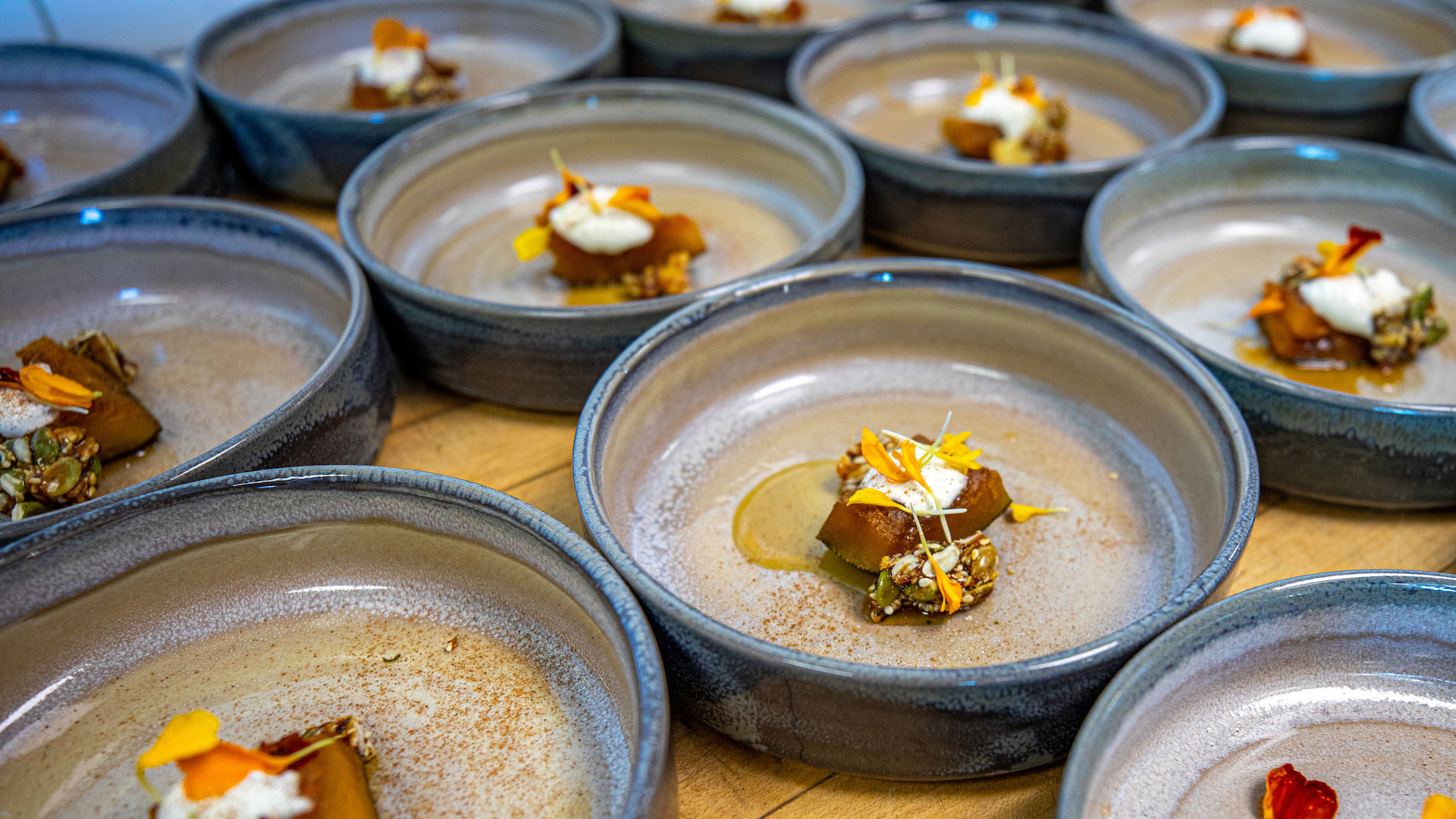JWU Launches ‘Changing the Way the World Eats’ Initiative

JWU’s College of Culinary Arts has launched “Changing the Way the World Eats,” a new public awareness effort to encourage healthy eating — as well as to emphasize its influence on the world’s food decisions, industry choices, and overall health and well-being.
Much about the way we eat has changed since 1973 when Johnson & Wales University (JWU) opened its College of Culinary Arts in Providence, RI.
The World Health Organization reports that worldwide obesity has more than doubled since 1980. Americans have gone from adhering to 4 food groups (milk, meat, vegetables and fruits, and bread/cereal), to decoding nutritional labeling, assessing a multitude of diet recommendations and fads, and getting caught between the crosshairs of fact and hyperbole.<
Simultaneously, the university has expanded to 4 campuses across the US while the power of food has become as controversial as it has beneficial.
“Consumers have been blitzed by information on what’s good and not good to eat,” Peter Lehmuller, EdD, dean of the College of Culinary Arts says, “Our faculty, alumni, and inquisitive students are able to apply what they know and learn so that a multitude of people can eat healthier. All the healthy food in the world isn’t good if it isn’t palatable.”
Lehmuller, a 20-year veteran with the university, articulates the sea-change in culinary education. Once considered a vocation, culinary arts has been generating a new field of careers that extend beyond the kitchen and into the research labs of major food companies, entrepreneurial start-ups, medical schools, and more.
As an international leader of culinary education and with its scores of alumni who have become established in the food industry as executive chefs, research chefs, nutritionists, dietitians, food service managers, entrepreneurs and business leaders, JWU has become a recognized food authority.
In addition, the university has collaborated with medical schools across the US, including Tulane University School of Medicine, Warren Alpert Medical School of Brown University, and the University of Colorado School of Medicine in an effort to bridge the gap between food and medicine.
During the past 3 decades, JWU’s culinary programs have evolved to include a Bachelor of Science degree in Culinary Nutrition. The program, launched in 1999, was the first of its kind to receive accreditation from the Accreditation Council for Education in Nutrition and Dietetics (ACEND).
Many of JWU’s graduates go on to become dietitians and research chefs. According to the US Bureau of Labor Statistics, employment of dietitians and nutritionists is projected to grow 21% through 2022, faster than the average for all occupations.
The role of food in preventing and treating illnesses, such as diabetes, is now well known. More dietitians and nutritionists will be needed to provide care for patients with various medical conditions and to advise people who want to improve their overall health.
Chef Jonathan Poyourow '03, RD, LD, an assistant professor in the Culinary Nutrition department, is leading the effort with new TV segments that appear bi-weekly as part of Cooking with Class on NBC10’s noon news broadcast airing in southern New England.
Chefs and faculty at all campuses will be joining the effort to educate consumers about eating healthy through media and community appearances. A new website has been launched featuring blogs, wellness and sustainability tips, and recipes from JWU faculty experts.



